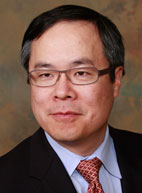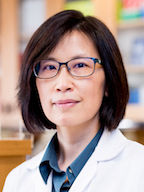About Us
Chief's Message
- Message from the Chief
Meet the Team
Conditions & Procedures
Patient Center
Transplant Experiences
- Patient Stories
Kidney Transplant
- New Patient Information and Forms
- Patient Referrals
Liver Transplant
- New Patient Information & Forms
- Liver Transplant Handbook
- Patient Referrals
Resources
- Helpful Links
- Organ Donation
- UCTV Transplant Videos
Clinics
UCSF Medical Center
- Kidney Transplant
- Liver Transplant
- Pancreas Transplant
Benioff Children's Hospital
- Kidney Transplant
- Liver Transplant
Other Locations
- Liver Transplant
- Kidney Transplant
Education & Training
Research
News & Events

Sang-Mo Kang, M.D.
- Professor of Surgery
- Division of Transplant Surgery
- Surgical Director of Liver Transplantation
- UCSF-Benioff Children’s Hospital
Contact Information
Education
- Cornell University, B.A., Chemistry, with Distinction, 1982-86
- Harvard Medical School, Boston, MA, M.D., Magna Cum Laude 1986-92
Residencies
- University of California, San Francisco, Intern and Resident, General Surgery Program, 1992-95
- University of California, San Francisco, Resident, General Surgery Program, 1997-99
Postdoctoral Training
- University of California, San Francisco, Postdoctoral Fellow , Immunology and Transplantation, 1995-97
Clinical Expertise
- Bile Duct Injuries
- Bile Duct Strictures
- Choledochal Cyst Disease
- End-Stage Kidney Disease
- Fulminant Hepatic Failure
- Hepatitis B
- Hepatitis C
- Hepatocellular Carcinoma (Liver Cancer)
- Intestinal Failure
- Intestinal Transplantation
- Kidney Transplantation
- Laparoscopic Donor Nephrectomy
- Liver Cysts
- Liver Transplantation
- Nonalcoholic Fatty Liver Disease
- Pancreas Transplantation
- Pediatric Kidney Transplantation
- Pediatric Liver Transplantation
- Portal Hypertension
- Short Bowel Syndrome
Biography
Sang-Mo Kang, M.D. takes care of both adult and pediatric patients and performs kidney, liver, pancreas and intestinal transplants as well as surgery for numerous hepatobiliary and gastrointestinal diseases. He is Surgical Director of Liver Transplantation at UCSF-Benioff Children's Hospital.
Dr. Kang received his B.S. in chemistry from Cornell University and his M.D. from Harvard University Medical School. He completed a general surgery residency, and immunology and clinical transplantation fellowships at University of California, San Francisco.
Dr. Kang's current research focus is in the development of novel strategies for the induction of transplant-specific tolerance. Dr. Kang has published numerous articles in medical and scientific journals and been invited to present at national and international seminars and conferences.
Dr. Kang is a member of numerous medical societies including American Society of Transplant Surgeons, American College of Surgeons, American Association of Immunologists, National Kidney Foundation, Association for Academic Surgery, and Society of University Surgeons.
Research Overview
The Kang Lab is developing novel strategies for the induction of transplant-specific tolerance. The research focuses on achieving what is known as "allo-specific transplant tolerance", a specialized method of preventing the rejection of a transplanted organ without suppressing the entire immune system.
Currently, transplant recipients must receive immunosuppressive drugs to suppress their own white blood cells (T cells) that attack foreign cells and cause organ rejections. Unfortunately, these non-specific drugs affect the entire immune system and thus carry significant risks for infection and certain malignancies. The goal is to eliminate the need for global immunosuppression in transplant recipients. Ideal immunotherapy would be one that targets only the donor-specific immune cells that cause rejection, without affecting any of the other immune cells, thus leaving the immune system intact and able to function at full capacity.
To this end, the lab is conducting several experiments to gain insight into the mechanisms of rejection. These projects include the use of specialized immune cells in targeting specific lymphoid organs, as well as investigations into the contributions of CD+4 T cells and CD8 T cells to the process of transplant rejection. The laboratory's work is helping to define important parameters for potential treatments in humans.
Research & Funding
Data provided by UCSF Profiles, powered by CTSI
- Donor-Alloantigen-Reactive Regulatory T Cell Therapy in Liver TransplantationSponsor: NIH/NIAIDSponsor ID: U01AI110658Funding Period:Jun 2014-May 2019Co-Principal Investigator
- "Donor-Specific Regulatory T Cell Therapy in Liver Transplantation"Sponsor: NIH/NIAIDSponsor ID: R34AI095135Funding Period:Apr 2012-Mar 2014Co-Principal Investigator
- Donor-Specific Regulatory T Cell Therapy in Liver TransplantationSponsor: NIHSponsor ID: R34AI095135Funding Period:Apr 2012-Mar 2014Co-Principal Investigator
- Tolerance Induction Using Modified Dendritic CellsSponsor: NIH/NIDDKSponsor ID: R03DK075431Funding Period:Apr 2007-Mar 2010Principal Investigator
Clinical Trials
Data provided by UCSF Profiles, powered by CTSI
- Study ID: NCT02244801Start Date: Apr 2015Estimated Completion Date: Aug 2018Condition(s): Kidney Disease, Kidney Transplant
Publications
MOST RECENT PUBLICATIONS FROM A TOTAL OF 30
Data provided by UCSF Profiles, powered by CTSI
- Thiessen C, Ling I, Horvai A, Kang SM. Fever, skin nodules, and hyperintense intramuscular leg lesions in a liver transplant patient. Am J Transplant. 2022 Feb; 22(2):658-661. View in PubMed
- Meier RPH, Kelly Y, Yamaguchi S, Braun HJ, Lunow-Luke T, Adelmann D, Niemann C, Maluf DG, Dietch ZC, Stock PG, Kang SM, Feng S, Posselt AM, Gardner JM, Syed SM, Hirose R, Freise CE, Ascher NL, Roberts JP, Roll GR. Advantages and Limitations of Clinical Scores for Donation After Circulatory Death Liver Transplantation. Front Surg. 2021; 8:808733. View in PubMed
- Lee AY, Lehrman ED, Perito ER, Kerlan RK, Kohi MP, Kolli KP, Taylor AG, Ostroff JW, Kang SM, Roberts JP, Rhee S, Rosenthal P, Fidelman N. Non-operative management of biliary complications after Liver Transplantation in pediatric patients: A 30-year experience. Pediatr Transplant. 2021 Sep; 25(6):e14028. View in PubMed
- Braun HJ, Torres AM, Louie F, Weinberg SD, Kang SM, Ascher NL, Roberts JP. Expanding living donor liver transplantation: Report of first US living donor liver transplant chain. Am J Transplant. 2021 04; 21(4):1633-1636. View in PubMed
- Syed SM, Gardner J, Roll G, Webber A, Mehta N, Shoji J, Adelmann D, Niemann C, Braun HJ, Mello A, Yao F, Posselt A, Kang SM, Hirose R, Roberts J, Feng S, Ascher N, Stock P, Freise C. COVID-19 and Abdominal Transplant: A Stepwise Approach to Practice During Pandemic Conditions. Transplantation. 2020 11; 104(11):2215-2220. View in PubMed
- View All Publications
Videos
Data provided by UCSF Profiles, powered by CTSI
- UCSF Kidney Transplant Update: State of Transplantation, New Drugs, New Trials, Transplant Controversies
- 2010 Kidney Transplant Update: Bariatric Surgery for Transplant Candidates, Novel Therapies for Gastroparesis
- 2010 Kidney Transplant Update:T-Regulatory Cells: Can we Harness them To Decrease Immunosupression
- UCSF Kidney Transplant Update 2011: Higher Risk Donors; Paired Donation Chains
- What Organ Shortage? Just Make Your Own! Stem Cells and Organ Engineering
In the News
- UCSF Transplant Surgery - March 10, 2014UCSF News reports on the work of Qizhi Tang, Ph.D., and other UC San Francisco researchers to develop new organ transplant strategies that better prevent rejection of donated organs. The research of Dr. Tang, Associate Professor in the Division of Transplant Surgery, and Director of the Transplantation Research Lab and Tang Lab, and colleagues, is reported on in two recently published journal articles. "Organ-transplant recipients often reject donated organs, but a new, two-pronged strategy [...]

- UCSF Transplant Surgery - May 01, 2009San Francisco International Film Festival, Thirteen years ago, Pat Spurgeon of the indie pop band Rogue Wave received a kidney transplant. Unfortunately, just as the band started to take off, the kidney began to fail. The feature documentary "D Tour" chronicles Pat's experience as a UCSF kidney patient including his search for a living organ donor. The film also features Dr. Sang-Mo Kang of the UCSF Division of Transplantation, the surgeon who took care of Pat. * Image of Pat Spurgeon [...]

